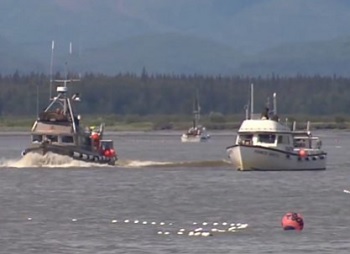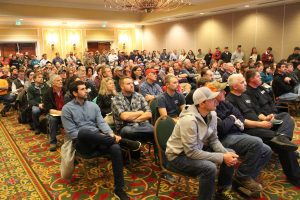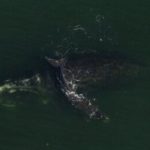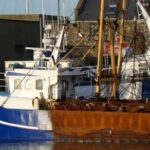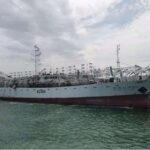Daily Archives: April 6, 2020
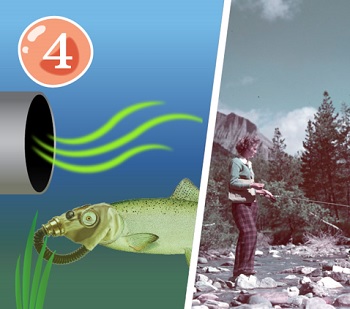
The Deadly Gauntlet Fraser Salmon Must Travel to Come Home
The rockslide at Big Bar just north of Lillooet was a natural disaster that blocked the Fraser last summer, making it impossible for many returning salmon to return to their natal spawning streams. Of the five million sockeye expected to return for example, only about 300,000 made it to their spawning grounds. The only upside of the disaster is that it’s shining a new light on what we call the Gauntlet: the tortuous path that all six species of Pacific salmon must run every year as they return from their migrations on the high seas to fresh water streams across the 21 million-hectare Fraser River watershed. The rockslide was an act of nature that with engineering expertise and brute force can eventually be fixed. But as the Gauntlet illustrates, what will prove much harder is to save Fraser salmon from the trajectory of decline they were already on before the rockslide happened. >click to read< 21:26
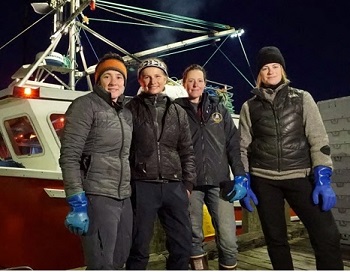
Coronavirus: Lunenburg lobster boat captain sells directly to consumers to stay afloat
It was shaping up to be one of Gail Atkinson’s best seasons ever, but then COVID-19 struck and the Lunenburg, N.S., lobster fisher had to get creative. Atkinson, who captains the Nellie Row, decided to keep her traps in the water even as prices plummeted. Now, she not only catches lobster, she also delivers it to customers in the Lunenburg area.,,, Atkinson is selling lobster for $8 a pound at the wharf and offering “contactless” delivery for customers near Lunenburg.,, Stephen Bond, co-chair of the Lobster Fishery Area 33 advisory committee, is taking the opposite approach. He applauds what Atkinson is doing, but said it’s not feasible for him given the size of his boat and crew. “There’s the select few, I’ll call them, that are able to follow Gail’s model or a smaller business model working with some of the local community, but it certainly doesn’t cover off the market that we’re missing,” >click to read< 19:55

Captains hope to replace coronavirus-related restaurant closures with direct customers
With their normal markets shrinking amid the coronavirus outbreak, South Coast fishermen are coming up with creative ways to sell their catch directly to consumers. Troy Durr created the Facebook group “South Coast Direct Source Seafood” “A lot of the fish houses are not buying from the boats, which left them in a situation to stop working or figure out their own way to sell,” (Troy) Durr said. The new way to sell is directly off their boats.,, Two boats went out on April 4 and sold lobsters at Union Wharf in Fairhaven for $6 per pound. “Today we had our first sell date,” Durr said in a post, “Two locally owned and operated lobster boats sold out of 600 lbs of lobsters in an hour and a half right at Union Wharf in Fairhaven.” >click to read< 17:03
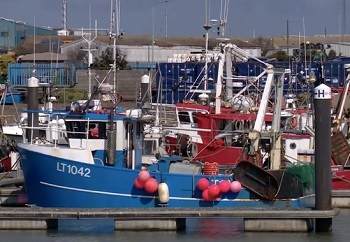
Fishermen across the East say their industry’s on a knife edge due to Coronavirus crisis
At Leigh on Sea in Essex, fisherman Paul Gibson says he’s experienced several challenges over the years, none of which amount to this scale. “The fishing industry is in absolute turmoil, ports have closed because of lack of demand, getting fish to supermarkets or to the continent where in the South East most of our fish goes, the markets have stopped.” Covid-19 follows years of decline in the industry here in the East, but now it could be fatal. Video, photo, >click to read< 16:27
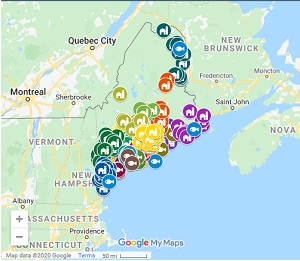
Maine farmers, fishermen find new ways to keep selling products safely
As businesses struggle to stay afloat and keep serving customers, farmers and fishermen are finding ways to keep up selling their products safely. A farmer launched an online initiative and now there is one site with more than 300 farmers, fishermen and other producers all on one interactive map. Click on any of the icons for each business to get details on how to buy products and how to get it. >click to read and use the interactive map for names and locations.< It should continue expanding beyond the region! 15:05
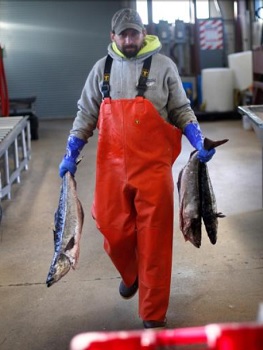
Coronavirus impacts New England seafood industry as wholesale demand fades
The spread of the coronavirus has upended the seafood industry as restaurants close, fishermen tie up their boats and even big-money catches like lobster see lower demand, industry leaders say. Robert Nagle, vice president of Boston-based seafood wholesaler John Nagle Co., said the industry is trying to do all that it can as more fishing boats are tying up because of a decrease in demand. “If a boat can’t get enough money, they can’t pay their bills, they can’t pay their crews, the boat is not viable,” Nagle said. Live lobsters, which are usually sold to restaurants and exported around the world, have been essentially shut down with no one to buy catches, Nagle said. >click to read< 12:03
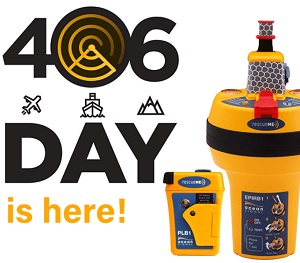
PLBs and EPIRBs: Marine Safety Specialists Join Forces to Raise Beacon Awareness on ‘406Day’
UK marine safety specialists Ocean Signal and Ocean Safety are issuing important advice to boat owners about the benefits and responsibilities of owning a 406 MHz beacon on ‘406Day’ (#406Day20) today, Monday, April 6th.,, As leading suppliers of PLBs and EPIRBs, Ocean Signal and its distributor Ocean Safety have joined forces to raise awareness about the life-saving technology and to highlight safety checks and procedures for beacons as boaters prepare for the season. The annual day was initiated by Ocean Signal’s sister company, Florida-based ACR Electronics, eight years ago to help people understand how to register, use and maintain their beacons correctly. >click to read< 11:12
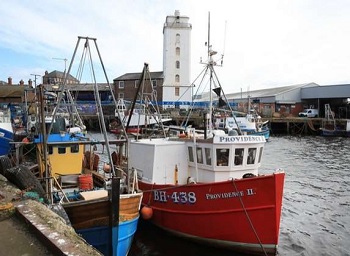
Coronavirus: Eat More Fish! Shoppers urged to support UK fishermen as export markets dry up
With the export markets to Europe and China ruined, restaurants and chippies closed, hospitality shut down and many supermarkets not staffing their fish counters, skippers have decided to keep their vessels tied up. But some are still going out to fish, and more of what they catch is available online or being sold door-to-door.,,, “Groups of fishermen around the UK are setting up websites so they can sell locally landed fish straight to local fishmongers or to households and we’re seeing an increase in the use of fish vans which makes it easier for people to buy seafood too. photos, >click to read< 09:42

Woes and blessings in the age of coronavirus, Rachel Blackmon Bryars
Those of us who grew up in the Bible Belt are very familiar with the good book’s many “woe-to-the” passages. Woe to the shepherds who destroy and scatter the sheep. Woe to those who call evil good, and good evil. Woe to the foolish. These passages have never been among my favorites, but the general phrase kept coming to mind this week, with a coronavirus twist. I still don’t like the woe-to-the mindset. I don’t like feeling angry. I don’t want to feed resentment. I want to hope for the best, believe the best, point to the best. Which is why I’m forcing my mind to pivot to a different phrase, “Blessed-are-the.” Blessed are the nurses, doctors, hospital staff, and medical workers of all types working tirelessly for days and nights on end. Who are on the front lines in a life-and-death battle. Who are heroes, each one. Blessed are the farmers, the ranchers, and the fishermen — remaining in the pastures, the fields, and on the seas so that we may feed our families. Blessed are the truckers who bring it all to market. >click to read< 07:23






